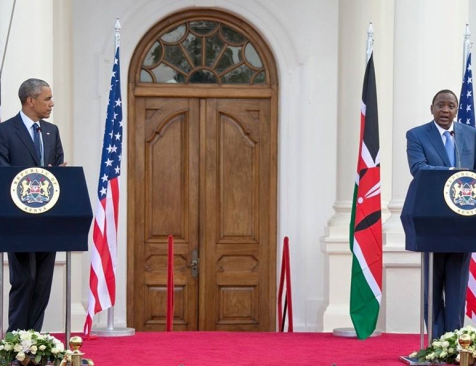×
The Standard e-Paper
Home To Bold Columnists

The delicate issue of gay and lesbian rights popped up Saturday during a press briefing at State House as US President Barack Obama differed sharply with his host, President Uhuru Kenyatta, over the handling of those involved.
Responding to a question from journalists after holding bilateral talks in the afternoon, Obama pleaded the case of those “with a different sexual orientation”, asking the Kenyatta administration not to discriminate against such individuals.